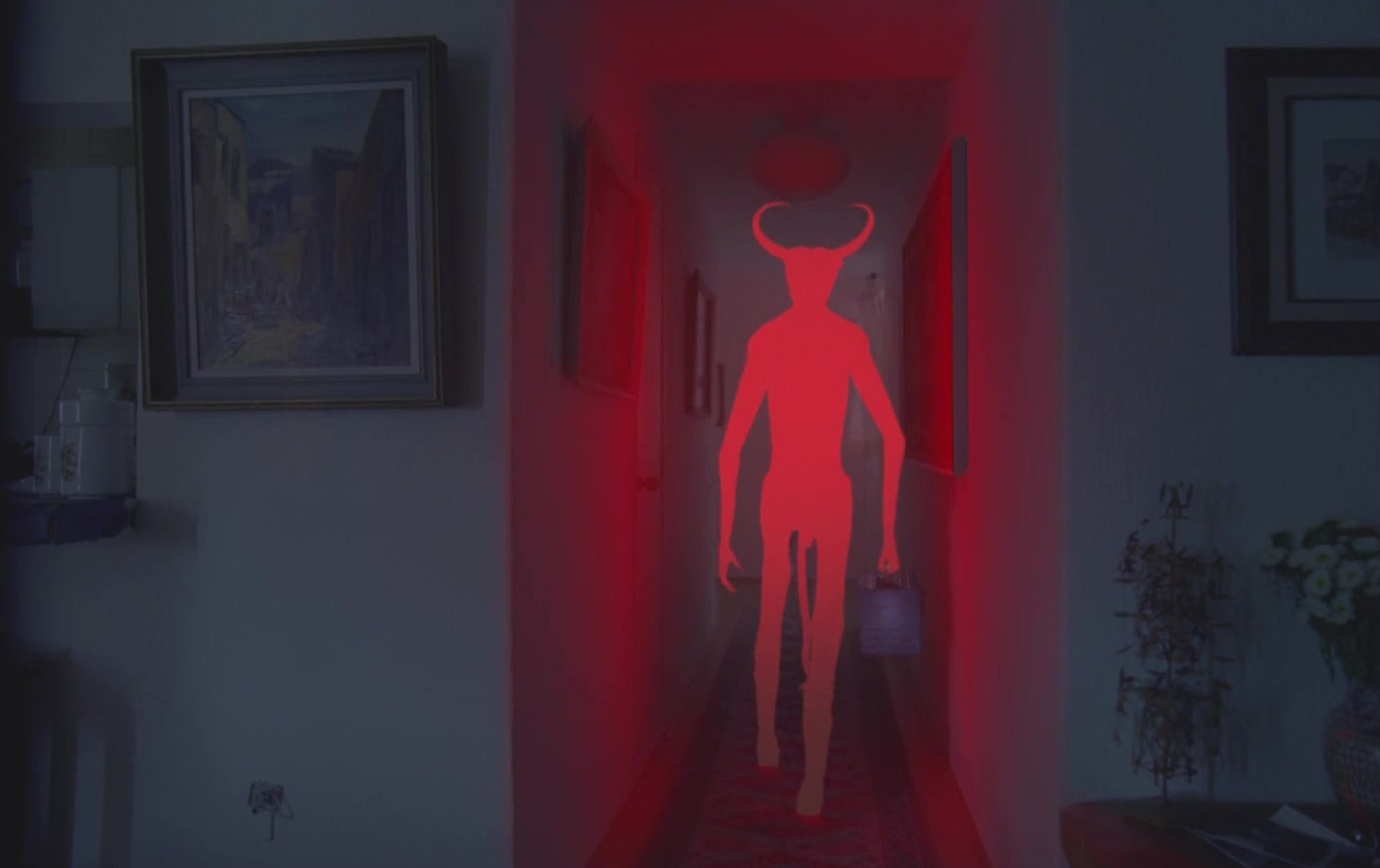
Since the writing of the Bible, it has been found the first iconographics reports of the battles between good and evil. God vs. the Devil; such a clash goes on in countless cultures around the world. Years earlier, Plato’s dialogues presented the idea of an absolute moral good, shortly before the creation and establishment of monotheism.
In cinema, from its beginnings, antagonisms are very present – the spectator always has something or someone to whom he feels himself identified. In The Birth of a Nation, D.W. Griffith established within the classic norms of cinema, the advent of well-defined heroes and villains in the films.
Thus, the tradition of Hollywood follows the molds of these rules, always making clear this Manichaeism. However, from the 1960s, with the advent of modern cinema movements around the world, the line between good and evil became less obvious and more confusing between the characters.
Here are 10 great movies that blur the line between good and evil.
1. The Piano Teacher (Michael Haneke, 2000)
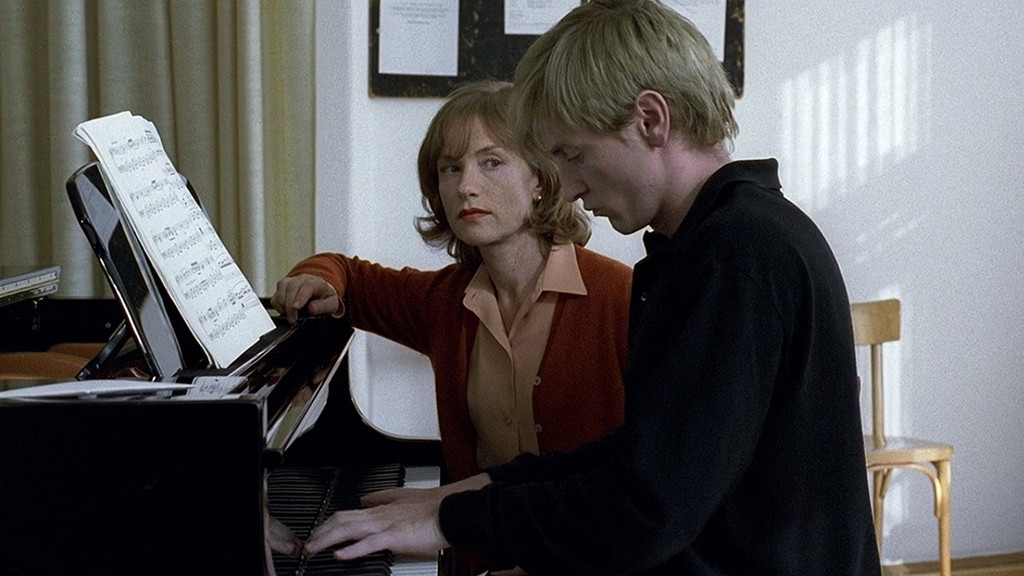
One of the great masters of the contemporary cinema, Michael Haneke collects stunning movies that challenge the spectator. Since Funny games, one of his firsts masterpieces, he became famous in Europe and in the entire world.
In The Piano Teacher, the director was nominated for the Palme d’Or and Isabelle Huppert, the leading actress, won the award for Best Actress, in Cannes; the movie was a commercial and critic success. Years after its debut, The Piano Teacher stills shocks and amazes many people, who claim the piece as one of Haneke’s best movies.
The 2001’s movie is about Erika, a peculiar piano teacher whose rigid methods cause disorder within her music school. Her personal life, however, is a bit more curious than her professional one: she is a hard attendant of sex shops and pornographic cinemas.
Dealing with family problems with her mom, Erika tries to relieve her heavy existence with sexual games between herself and Walter, a young talented piano student. This relationship creates a dark pyschosexual drama, that sickens the viewer.
This thrilling sex battle leads the spectator to question the character of both Erika and Walter. As they go deep in their obscure games, the teacher shows a submissive personality towards her lover – unlike the one shown in the piano classes.
Furthermore, The Piano Teacher addresses a debate about sadomasochism. There are two dominant opinions: sadomasochism as sexual liberty or, in the other hand, a simple act of violence and submission. To crown this heavy masterpiece, an astounding ending: Erika, is left completely alone and humiliated by Walter, walking away from a theater. All her vividness and deepest secrets had blown away with her former lover.
2. Apocalypse Now (Francis Ford Coppola, 1979)
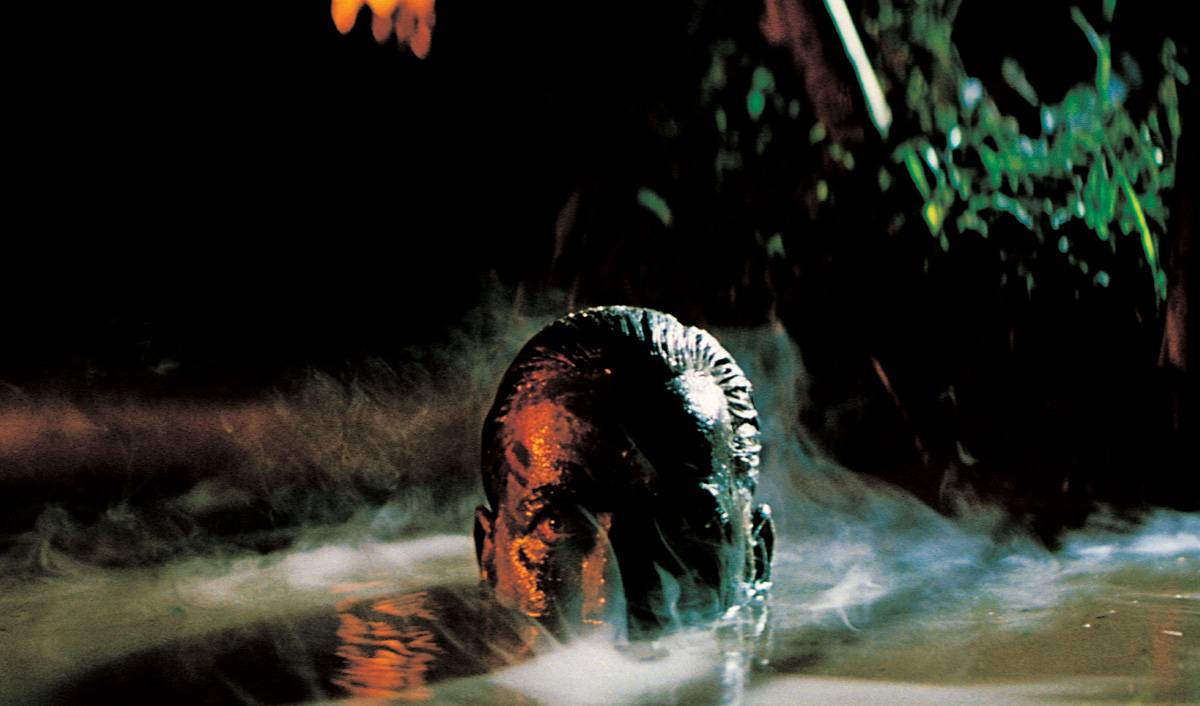
Certainly, Apocalypse now was one of the most disturbing pre-productions of all time. The movie got notorious in the whole world, nominated for multiple Oscars and winning several awards in Cannes. Inspired by the novel Heart of Darkness, by Joseph Conrad, this piece its a film manifesto from the 70’s. This Francis Ford Coppola masterpiece almost cost him his reputation and, also, his life. Even with all those problems, this film is a truly mark of the postmodern cinema.
The plot tells the story of Willard, a Captain of the US Army, who gets the hard mission of killing Walter Kurtz. This former US Colonel was accused of betrayal: the myths beyond this man are that he got mad and was treated like a god by some vietcongs. Willard, then, travels through all the extension of the river Nùng, in the wild Camboja, where he faces several provation.
In this movie, Coppola strongly criticizes the romanticization of the war, believing that it just causes pain and horror to humanity. Besides that, some characters, like the Lieutenant Killgore, shows another point of view: he says that war turns kids into men.
Here, is the first dichotomy between good and evil in the movie. Then, analysing Colonel Kurtz, the spectator also can’t get a clear image of this enigmatic and somber war veteran. Is he a true hero who claims for liberty to the vietcong Indians? Or is he simply a megalomaniac who likes to feel like to be praised like a god?
3. The Secret in Their Eyes (Juan José Campanella, 2009)
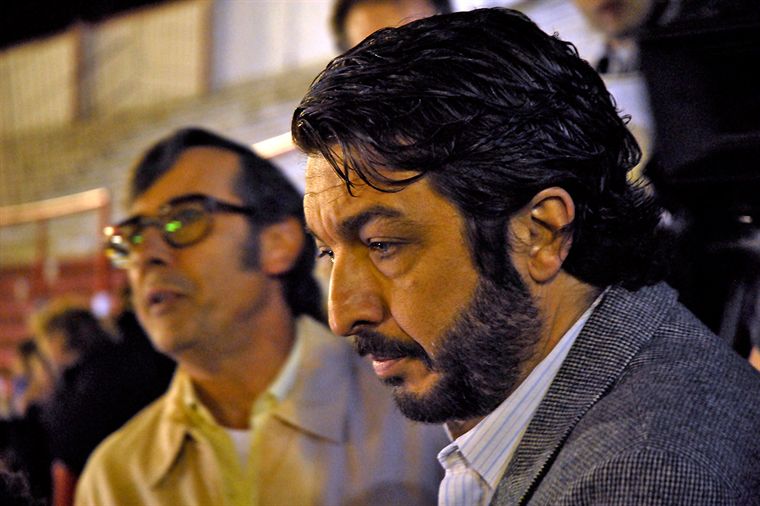
One of the greatest filmmakers of the Argentinian postmodern cinema, Juan José Campanella made, in this movie, his greatest critical and commercial success. Winner of the Best Foreign Movie Award, The secret in their eyes is a neo-noir movie about Benjamin, a former Buenos Aires detective, who wants to write a book about a case that he investigated thirty years ago. Evoking his past, he comes across some mysteries never imagined. Beyond all those secrets and intrigues, Benjamin still tries to seduce a past lover.
In this movie, the greatest debate between good and evil happens right on the flashbacks of the inquiry. While Benjamin investigates the brutal case of the murder of a young lady, the viewer starts questioning the methods used by the detective. Moreover, the legal environment proves its corruption; therefore, the lack of reliability of the juridical mechanism and its problems regarding the population are exposed.
Finishing this captivating drama, it is discovered that the widow, Ricardo Morales, keeps his wife’s murdered in a private prison. The discussion about doing justice with your own hands, here, is roused; seeing the legal justice failing with his wife, Morales, then, kidnaps Pablo Sandoval, the murderer, and tortures him. So, in the end of all of this fantastic thriller, the spectator doesn’t know what’s good and whats evil.
4. Pietà (Kim Ki-duk, 2012)
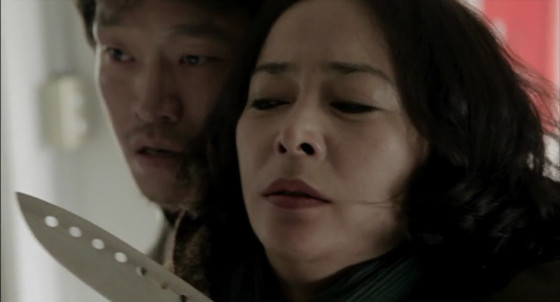
Definitely, Kim Ki-duk is a very versatile filmmaker: from Bi-mong to Arirang, the director approaches completely different themes with distincts cinematic resources. His amazing curriculum has a great number of awards, like the Silver Bear, in Berlin, the Silver and the Golden Lion, both in Venice. With a recurrently violent esthetics, Kim Ki-duk’s movies are difficult to watch, always letting the spectator uncomfortable. In Pietà, it isn’t different: this 2012’s piece is full of blood and ultraviolence.
A man called Kong-do works as a violent debt collector, like a hitman, who hurts his clients. However, when a strange and unknown woman appears in his life claiming to be his mother, Kong-do starts to change his way of living. Before, a merciless criminal, now, the young man turns himself into a sweet and childlike son. Discovering love, he quits his former job to give his alleged mother more attention.
The great discussion that blurs the line between good and evil in Pietà resides in the relation of Kong-do and his supposed mother. At first, the man is described as a cruel and pitiful human being. However, after the emergence of the mysterious woman, he is completely changed, becoming an emotional man.
So, is Kong-do in his essence a bad man or his character is shaped by a violent society? With the relationship with his mother, the protagonist gains the empathy of all the public, which begins to see the former hitman as a good person, who only needs compassion and affection.
5. Biutiful (Alejandro G. Iñarritú, 2010)
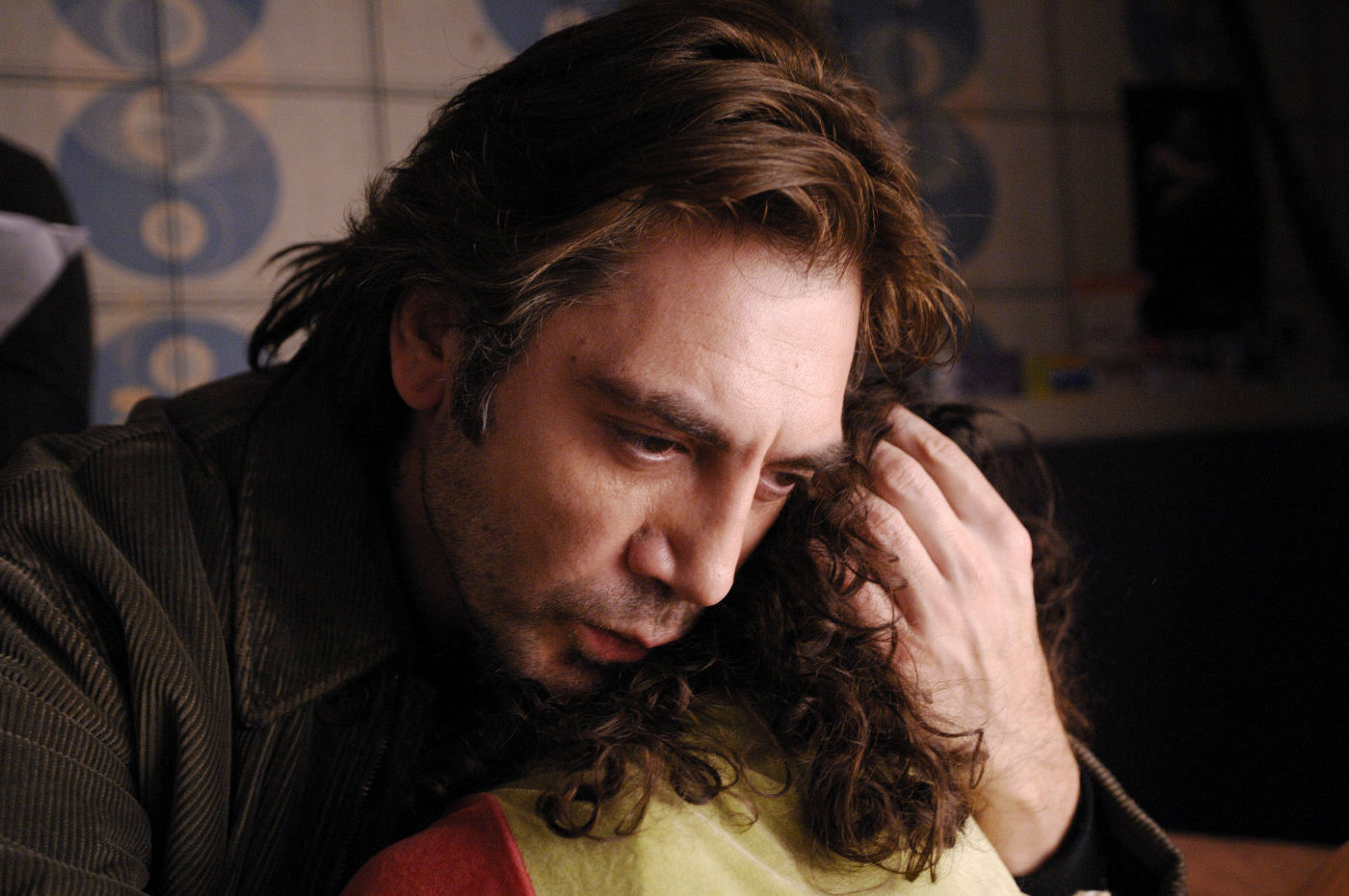
Controversy. No word could describe better the cinematographic life of Alejandro González Iñárritu. Exploring themes with his usual sensibility, the Mexican director lives in a constant love and hate relationship with cinephiles around the world.
Some say that he is a misunderstood genius, meanwhile other claims Iñárritu as an egomaniac, pretentious, who dreams to be the new Terrence Malick. Besides that, the filmmaker collects several awards in the Oscar, Golden Globe, BAFTA and Cannes.
Exploring an unknown part of Barcelona, Biutiful shows to the viewer the poverty, misery and crime of this giant Spanish metropole. Uxbal is a divorced man with two children, Anna and Mateo, and sells illegal medicines in the streets, hiring Chinese families in subhuman conditions. Suddenly, during a routine exam, the protagonist discovers a terminal cancer and starts chemotherapy. Then, Uxbal tries to deal with the feeling of guilt and impotence against life.
Obviously, Uxbal mixes up the spectator’s head when the issue is good and evil. While taking care of his two sons with love and fondness, the main character basically slaves Chineses in the streets of Barcelona. However, the family drama that they go through – the discovery of the cancer and the very poor living conditions – sensitize the spectator.
In the end, there is the redemption for Uxbal: his death. His passage to the other side is lyrical and beautiful. Dying with regret and guilty, the man conquest the affinity of the spectator, who, now, tries to understand this controversial person that is Uxbal.